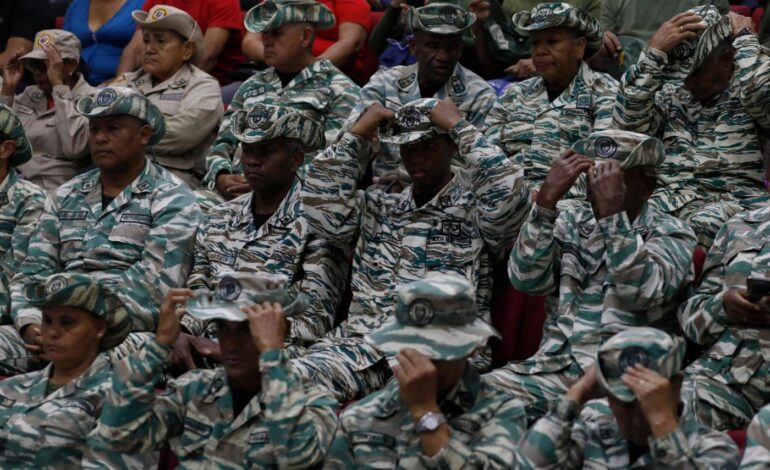US Military Strike Targets Venezuelan Drug Cartel Amid Escalation

UPDATE: The U.S. military has launched a controversial strike on a vessel linked to the Venezuelan drug cartel, Tren de Aragua, killing 11 gang members. This military action marks a significant shift in U.S. anti-narcotics efforts, raising urgent questions about legality and strategy.
Just announced on September 4, 2025, the operation signals a new phase in the Trump administration’s campaign against drug cartels accused of flooding the U.S. with cocaine and fentanyl. Officials assert that these cartels pose an immediate threat to American security, prompting a military response rather than traditional law enforcement methods.
Secretary of State Marco Rubio, during a visit to Latin America, emphasized the need for such actions, stating, “The President has the right to eliminate imminent threats.” This military strike, however, has been met with criticism and skepticism regarding its legal justification.
The Pentagon has remained tight-lipped about the operation’s specifics, including which military branch conducted the strike and the criteria for targeting the Tren de Aragua vessel. Defense Secretary Pete Hegseth stated, “We have those authorities, and it’s about keeping the American people safe,” yet avoided questions about the strike’s legality.
Legal experts are alarmed. Claire Finkelstein, a national security law professor, argues that this operation could be characterized as “extrajudicial killing” and lacks the necessary Congressional authorization or international backing. “There’s no authority for this whatsoever under international law,” she said, highlighting the potential for escalating tensions with Venezuela.
Vice President JD Vance defended the strike over the weekend, claiming it is vital for protecting American families from the dangers of drug trafficking. His remarks, however, have drawn bipartisan criticism, with calls for transparency regarding the U.S. military’s new role in combating drug cartels.
The Coast Guard typically leads drug interdiction efforts at sea, working alongside international allies. Traditionally, this involves stopping vessels, making arrests, and conducting thorough investigations to build cases against cartel leaders. The recent military strike, however, threatens to undermine decades of legal frameworks established for drug enforcement.
As the U.S. escalates its military presence in the region, with 10 F-35 fighter jets being deployed to Puerto Rico, officials warn that similar operations may occur again. “We’ve been waging war on these groups for 30 years,” Rubio stated, reinforcing the administration’s commitment to aggressive tactics against drug cartels.
Legal ramifications loom as tensions rise. Following the strike, two Venezuelan fighter jets approached a U.S. warship in the Caribbean, prompting fears of military escalation. Experts caution that this could be interpreted as an act of war against Venezuela, potentially inviting retaliatory actions.
In the context of America’s ongoing drug war, which began under President Richard Nixon in 1971, the recent military strike represents a drastic departure from established practices. While authorities reported 127 new prosecutions related to drug trafficking in the first nine months of the fiscal year, the long-term impact of shifting to military engagements remains uncertain.
As national and international scrutiny intensifies, the administration faces mounting pressure to clarify its strategy and legal justifications for these military actions. The implications of this strike could reshape U.S.-Venezuela relations and the broader approach to drug enforcement on the high seas.
Stay tuned as this developing situation unfolds, with critical updates expected in the coming days.






